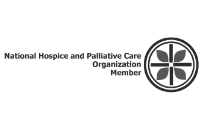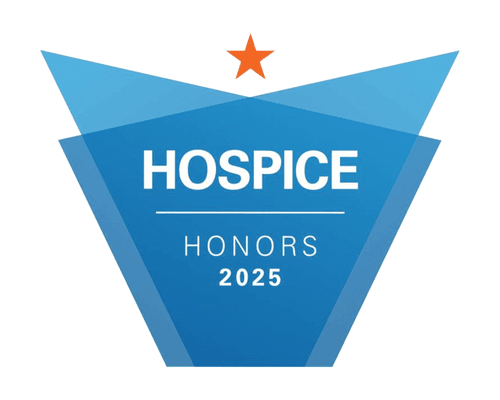Life should not be measured by the number of days, but quality of days.
Hospice and palliative (pronounced PAL-lee-uh-tiv) care are considered models of quality, compassionate care for people facing a life-limiting illness or injury. At Talbot Hospice, we believe that everyone coping with serious illness deserves to direct their course of care and to fully live in comfort, with grace, dignity and peace.
Difference Between Palliative Care and Hospice
Both palliative care and hospice care provide comfort, but palliative care can start at any point in time in someone's serious illness when symptoms are impacting their quality of life. Palliative care can begin at diagnosis, and at the same time as curative treatment. Hospice care can begin for terminally ill individuals who have a life expectancy of 6 months or less. You do not have to wait for a physician to refer you to hospice. If you are wondering if hospice would be helpful for you or a loved one, we encourage anyone to call at anytime. You can reach us at our 24 hour access line @ 410-822-2724.
Although the criteria to be enrolled in hospice and palliative care differs, both services manage symptoms to help keep your loved one comfortable. Both share a holistic and integrative approach to the care by treating the whole person — physically, emotionally, spiritually, and socially. Both types of care focus on relieving symptoms, pain and stress, for the patient, their caregivers, and their family.
5 Common Goals of Hospice and Palliative Care
- Provide relief from pain and symptoms to improve the quality of life.
- Treats the whole person – physically, emotionally, and spiritually – providing a holistic approach to care.
- Encourages patient and family participation in the plan of care.
- Helps patients live as actively as possible.
- Offers support to help the family and caregivers cope.
Talbot Hospice Core Programs
PALLIATIVE CARE
The goal of Talbot Palliative Care is to improve the quality of life for an individual at any stage in a serious illness, whether the disease is curable, chronic, or life-limiting. Patients receiving palliative care may still continue curative treatment. Talbot Palliative Care works with a patient's physician to manage symptoms and help maintain independence, reduce repeated hospitalizations and ER visits. Talbot Palliative care requires a referral from Community physician, such as primary physician, cardiologist, oncologist, etc. Click here to learn more.
HOSPICE CARE
Hospice care provides compassionate care and promotes dignity and comfort at the end of life. Hospice care is for individuals who have ceased curative treatments and /or exhausted all medical treatments. Hospice care focuses on managing pain, symptoms, and stress of end-stage, serious illness during the terminal phase. The hospice care team cares for the "whole person" and addresses the physical, emotional, social, and spiritual needs of both the patient and their loved ones. Hospice care requires a physician referral and signed attestation of a terminal prognosis of 6 months or less. Click here to learn more.
BEREAVEMENT & GRIEF SUPPORT
Talbot Hospice offers support to individuals and families before and after the death of a loved one. The bereavement team offers individual and family consultations for adults and children, as well as a number of support groups that meet on a regular basis. Bereavement services are offered without charge and there is no requirement for the deceased loved one to have been a Talbot Hospice patient. Click here to learn more.
Resources for our Latino Community
The following videos are used below courtesy of the Gateway Geriatric Education Center








